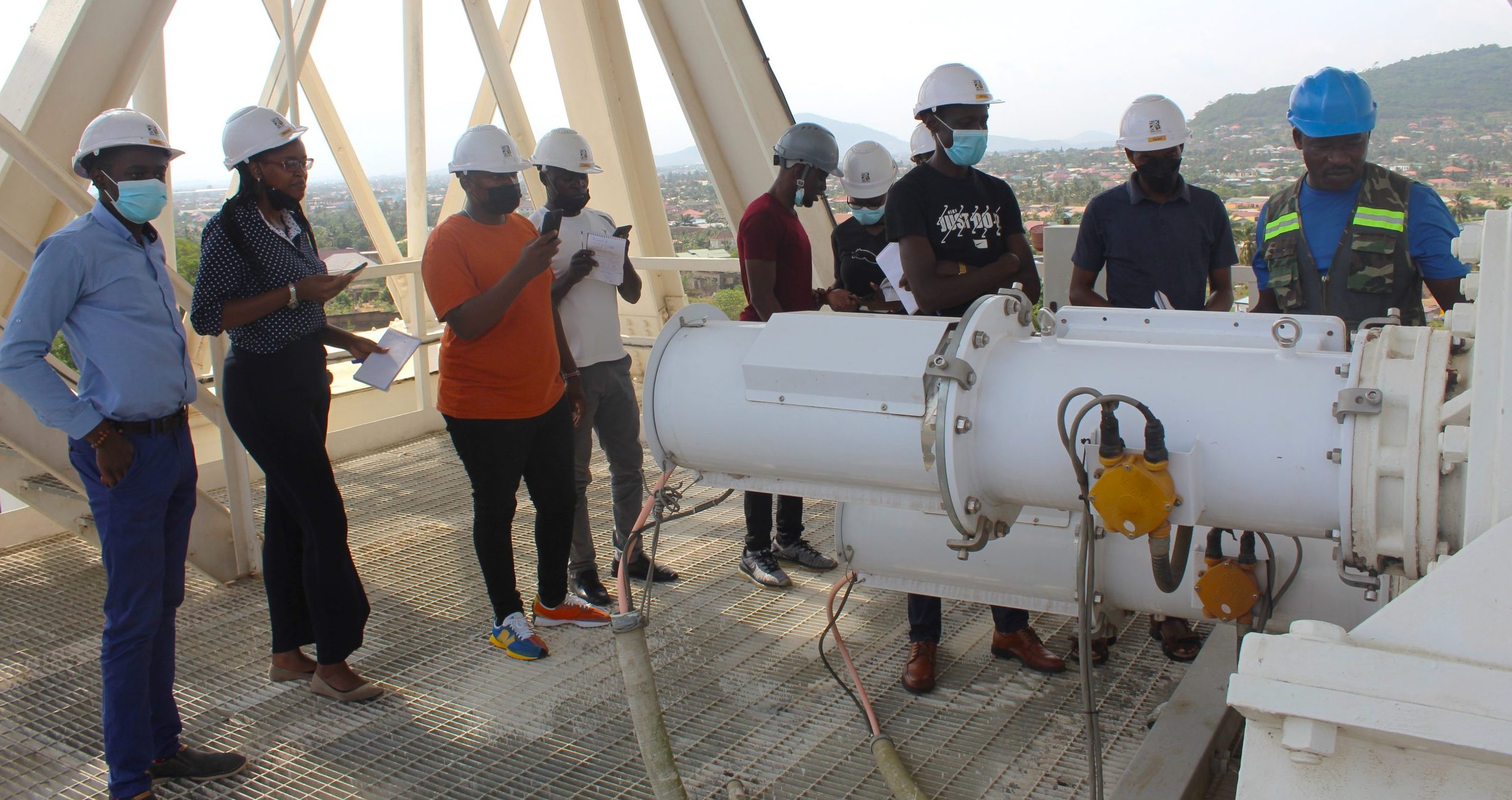Bringing STEM training to the developing world
| Lead | University of Manchester |
| Panel | B- Physical sciences, engineering, and mathematics |
| UoA | 9- Physics and astronomy |
| Location | Botswana, Colombia, England, Ghana, Kenya, Madagascar, Mauritius, Mexico, Mozambique, Namibia, South Africa, Thailand, Zambia |
| Funders | European Commission (EU), Science and Technology Facilities Council (STFC) |
| Funds or grants | Global Challenges Research Fund (GCRF), Horizon 2020, Newton Fund |
| Partners | In Africa: Botswana International University of Science and Technology, Eduardo Mondlane University, Ghana Space Science and Technology Institute, Technical University of Kenya, Department of Science & Innovation (South Africa), South Africa Radio Astronomy Observatory, University of Antananarivo, University of Mauritius, University of Namibia, University of Zambia. In Thailand: National Astronomical Research Institute of Thailand (NARIT). In UK: Goonhilly Earth Station, Jodrell Bank Centre for Astrophysics (JBCA), University of Bristol, University of Central Lancashire, University of Leeds, University of Hertfordshire, University of Oxford, University of Sussex, University of York. International: International Astronomical Union Office of Astronomy for Development (IAU-OAD), Inter-University Institute for Data Intensive Astronomy (IDIA) |
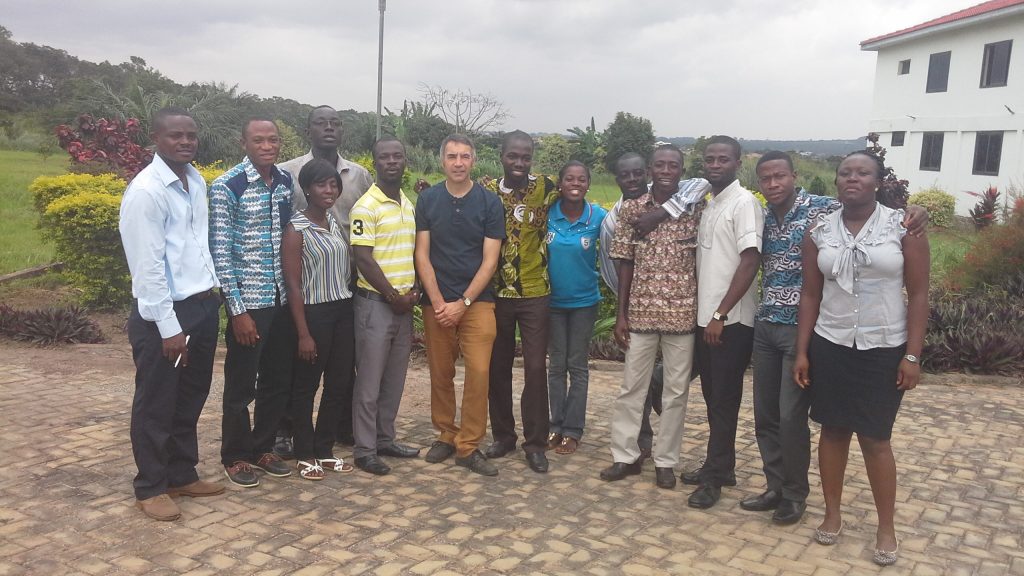
“The programme impacted the way we teach. The hands-on training model was adopted by Kenyan universities’ curriculum as they realised real data and field trips to firms enrich the experience. There were also some spin-offs, post-doctoral students leading new projects, others creating STEM courses for local communities, and even some setting up new NGOs to train on the basics of astronomy and other areas. And then some others realised they can apply for grants themselves and develop their own ideas.” LMIC-based trainee
Gaps in Science, Technology, Engineering, and Mathematics (STEM) capacities directly affect Low- and Middle-Income Countries’ (LMICs) research and economies. The Development in Africa with Radio Astronomy (DARA) (led by University of Leeds) and DARA Big Data (led by University of Manchester) programmes are sister initiatives that support STEM training and infrastructure development in Sub-Saharan Africa. Through UK academic and industry partnerships, these two programmes provided training in radio astronomy (e.g., Very Long Baseline Interferometry and the Square Kilometre Array) and big data research. Using relevant, local and real-life datasets and issues (e.g., drought management, social media coverage of COVID-19), they contributed to the development of competitive data- and science-driven socio-economic development in Africa.
Key Impacts
Built a new generation of African scientists and STEM practitioners
- DARA provided basic and advanced training in radio astronomy to over 300 graduates and 30 postgraduate students. DARA Big Data expanded to further data-science and science policy training to over 550 people across eight African countries. Dissemination of both programmes raised awareness on the importance of STEM skills among over 1,000 children, community leaders, and policymakers.
- Following in-depth technical STEM courses (e.g., astrophysics, agricultural data science, and cancer science) and soft skills mentoring (e.g., leadership and entrepreneurship), students undertook research, social, and commercial activities in their home countries.
- Hackathons and school science fairs highlighted the value of interdisciplinary data science and machine learning techniques applied to real-life development problems. Guest presentations and workshops exposed trainees to broader industry applications that helped them recognise the potential of STEM in Africa.
Informed government policy discussions and practices in Africa and the UK
- DARA Big Data science promotion and STEM outreach activities contributed to the Kenyan government’s white papers on food security and drought management. In the UK, findings informed the UK government’s briefing notes on environmental remote sensing and machine learning.
- DARA influenced Ghana’s practices on primary and secondary physics education. Adapted students’ curriculums now include in-school teaching on physics, astronomy clubs and visits to the Radio Astronomy Observatory (GRAO), thus increasing awareness and interest in STEM subjects.
Supported African research facilities
- Research contributed to a telecom antenna conversion for radio astronomy at GRAO. The antenna’s pivotal role in Ghana has garnered investment, improved local services and offered science training opportunities for skilled workers.
- In Kenya, in addition to data-management training, the programme supported the acquisition of special computers, servers, and other data-processing infrastructure. This has allowed Kenyan researchers to undertake their own research processes.
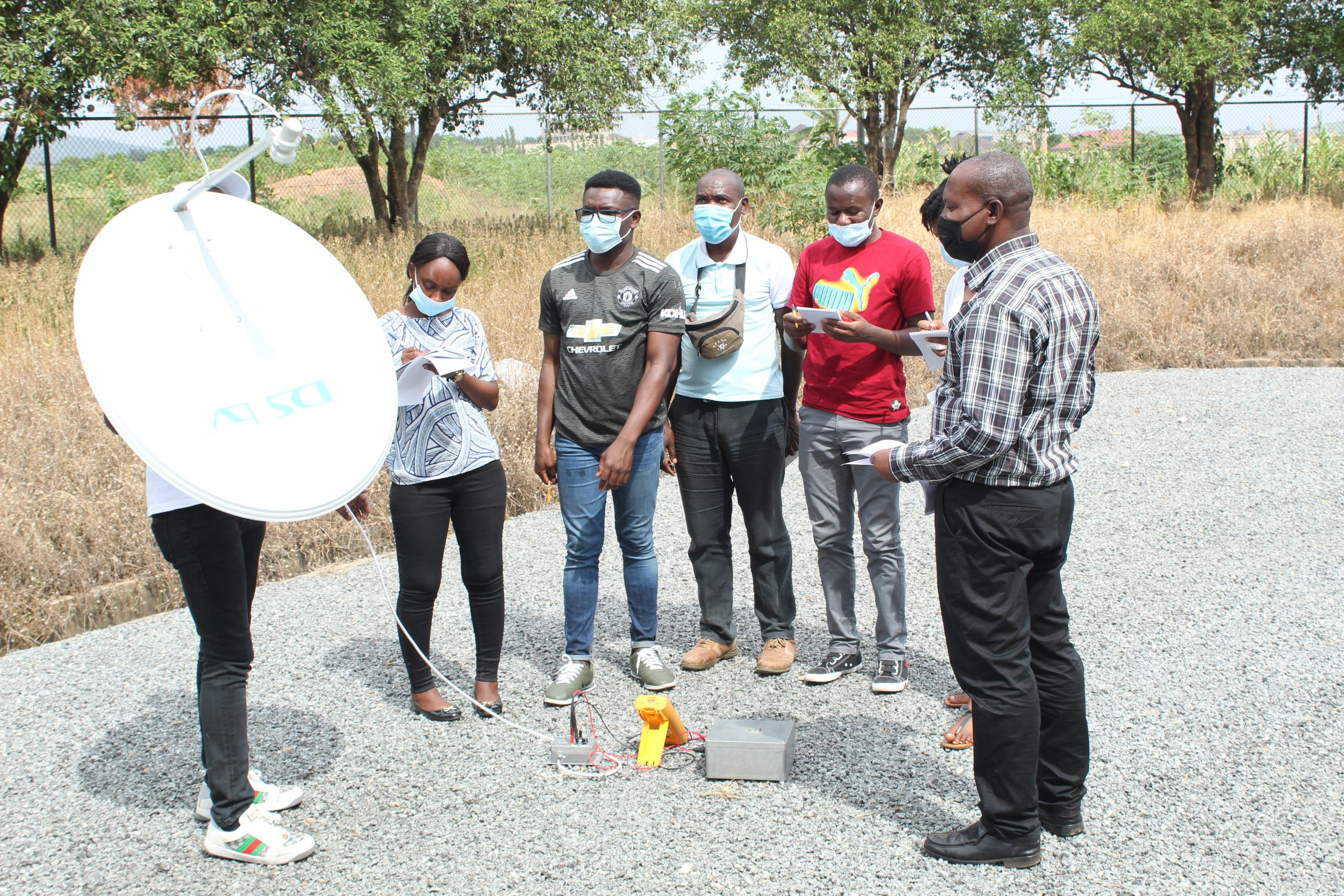
Underpinning research enablers
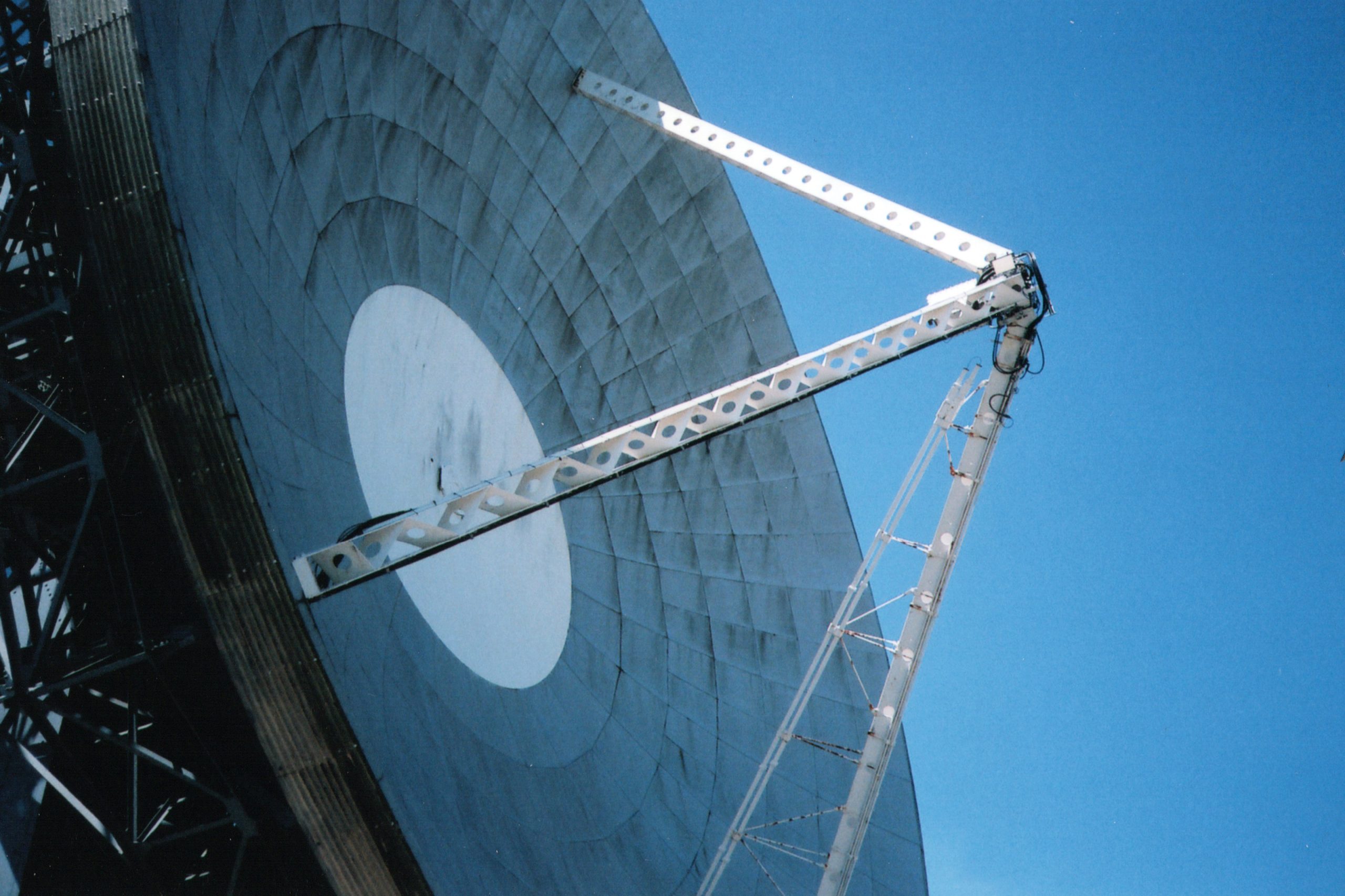
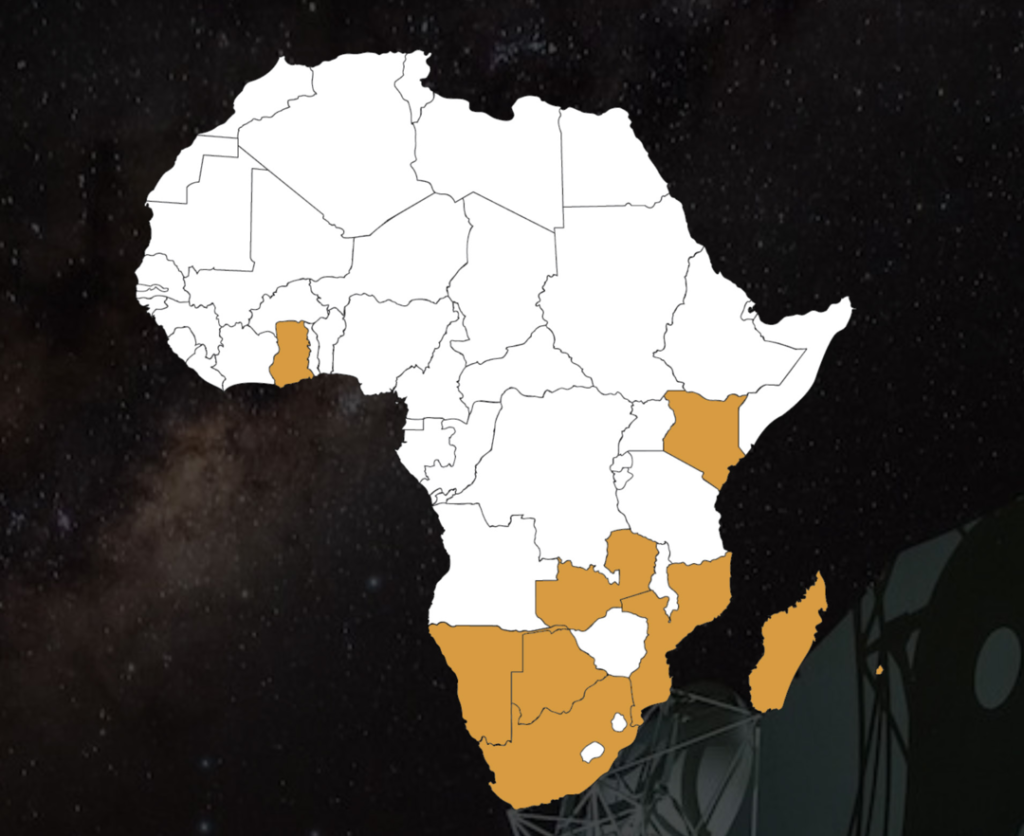
Recognise different timescales for achieving impact
- Post-grant cascading effects: The programmes achieved impact beyond the end of funding schemes. Following training, DARA alumni fostered networks and gained scientific leadership positions (e.g., Deputy President of the African Astronomy Society and Secretary of an East African astronomy society). Alumni also developed social, environmental, and commercial spin-offs, including educational initiatives for school students in Ghana and Kenya, an ethical astro-tourism business in Kenya, and various start-ups in Zambia.
- Inspiring similar STEM initiatives: DARA’s success inspired activities beyond the scope of the two programmes, thus reaching an even larger audience. Global partners (IAU-OAD and IDIA) developed similar challenge-led hackathons, LMIC Universities (Kenya) adapted their STEM training approach, and UK funders (STFC) supported similar models in Newton-funded countries (Colombia, Mexico and Thailand).
Take a long-term programmatic approach
- Long-term approaches enabled sustainability and scalability of impact: Following collaboration in Ghana, since 2014, DARA’s STEM training has expanded to include multiple African countries. Later, DARA Big Data added science communication and policy advocacy components. Both programmes leveraged existing collaborations with research institutes and the space sector (Goonhilly Earth Station, South African National Space Agency), supporting the continuity of engagement with policymakers and industry partners.
- Long-term capacity strengthening: Research created comprehensive training to enhance skills, technical knowledge, and capacity of LMIC individuals (trainees) and institutions (African universities and research centers), thus supporting incremental progress in LMICs’ STEM systems.
